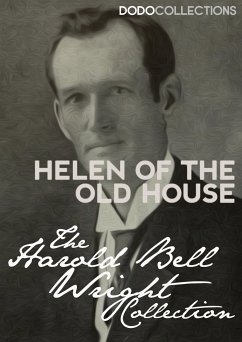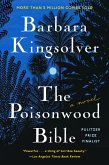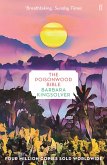Dodo Collections brings you another classic from Harold Bell Wright, 'Helen of the Old House.'
'In a solidly American tale, Bell Wright vivifies his characters in palpable surroundings. His narrative makes readers feel as though they are witnesses to the action as it takes place.
Against a backdrop of union politics in a factory town, the book takes a strong swipe at Communism while simultaneously decrying corporate greed. Ironically, this work-published in the 1920s-while strongly opposed to Karl Marx's ruinous philosophy never uses the word, "communism." The repeated references are subtle but unmistakable as when a "foreign" labor-organizing rabble-rouser says that his greatest allegiance is to the "Big Union."
On the other side of the coin, the criticisms of big business are limited to corruption and extreme selfishness. These vices are seen as invidious precisely because they abuse capitalism. The concept of getting rich via hard work is esteemed, as are the virtues of honesty, generosity, and devotion to one's fellow man.' (Amazon Review SF 13/09/02)
Harold Bell Wright (May 4, 1872 - May 24, 1944) was a best-selling American writer of fiction, essays, and non-fiction during the first half of the 20th century. Although mostly forgotten or ignored after the middle of the 20th century, he is said to have been the first American writer to sell a million copies of a novel and the first to make $1 million from writing fiction. Between 1902 and 1942 Wright wrote 19 books, several stage plays, and many magazine articles. More than 15 movies were made or claimed to be made from Wright's stories, including Gary Cooper's first major movie, The Winning of Barbara Worth (1926) and the John Wayne film, The Shepherd of the Hills (1941).
Dieser Download kann aus rechtlichen Gründen nur mit Rechnungsadresse in A, B, BG, CY, CZ, D, DK, EW, E, FIN, F, GR, H, IRL, I, LT, L, LR, M, NL, PL, P, R, S, SLO, SK ausgeliefert werden.









